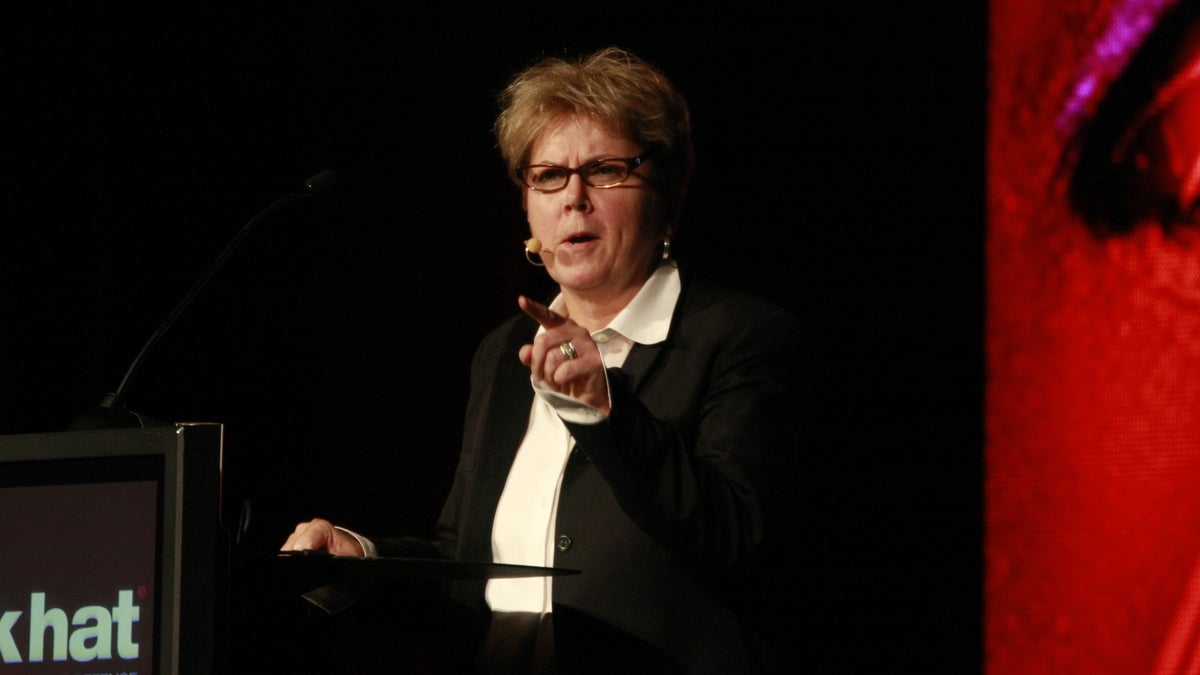DHS tries to defuse privacy criticism, asks for help
At Black Hat, Homeland Security's second in command receives mixed response when trying to downplay privacy concerns, asks attendees for help.
LAS VEGAS--A top Homeland Security official on Wednesday sought to downplay concerns about privacy and Internet monitoring raised by recent reports of the department's activities.
Jane Lute, the department's deputy secretary, told an audience at the Black Hat security conference here that she wants "to create a safe, secure, resilient place where we can thrive...The goal here is not control. It's confidence."
"How do we craft a strategy that permits the fullest exploitation of technology while ensuring our safety?" asked Lute, a lawyer who also has a degree in political science and previously was Assistant Secretary-General of the United Nations. "(We) want to stimulate a responsible debate about the rules of cyberspace."
Last month, DHS Sectary Janet Napolitano told an audience in Washington, D.C., that "We need the legal tools to do things like monitor the recruitment of terrorists via the Internet," without going into details about who would be considered a "terrorist" and how that surveillance would take place.
And, as CNET reported in March, Homeland Security may eventually extend its Einstein technology, which is designed to detect and prevent electronic attacks, to networks operated by the private sector. The technology was created for federal networks.
Lute alluded to these controversies only in passing, noting that "we're deploying Einstein 2 throughout the dot-gov."
But it's Einstein 3 that has attracted the most interest. Few details are known, and the House Intelligence Committee once charged (PDF) that public descriptions were overly "vague" because of "excessive classification." The White House has confirmed that Einstein 3 involves attempting to thwart in-progress cyberattacks by sharing information with the National Security Agency, and some reports have suggested it can read the content of e-mails and other messages.
Lute asked the thousands of security researchers, programmers, marketers, and other professionals in town for Black Hat to work with the federal government. "We've identified the cybermission as essential...We're committed to doing whatever we can to harness the ideas, energy of this group."
The public view of the Internet needs to shift from Wild West metaphors to a more secure space, she said. "Will there be rules?" Lute said, then added: "There will be rules! There will be rules."
During a brief question period at the end, not all the audience members seemed to be enthusiastic about Lott's view of the helpfulness of Homeland Security.
One suggested that, just as the Transportation Security Agency "slows down air travel, DHS in the cyberspace realm will slow down commerce and the exchange of knowledge."
Lott said that "it won't surprise you to learn that I differ from your characterization of TSA."
"Shocking," the Black Hat attendee replied.


